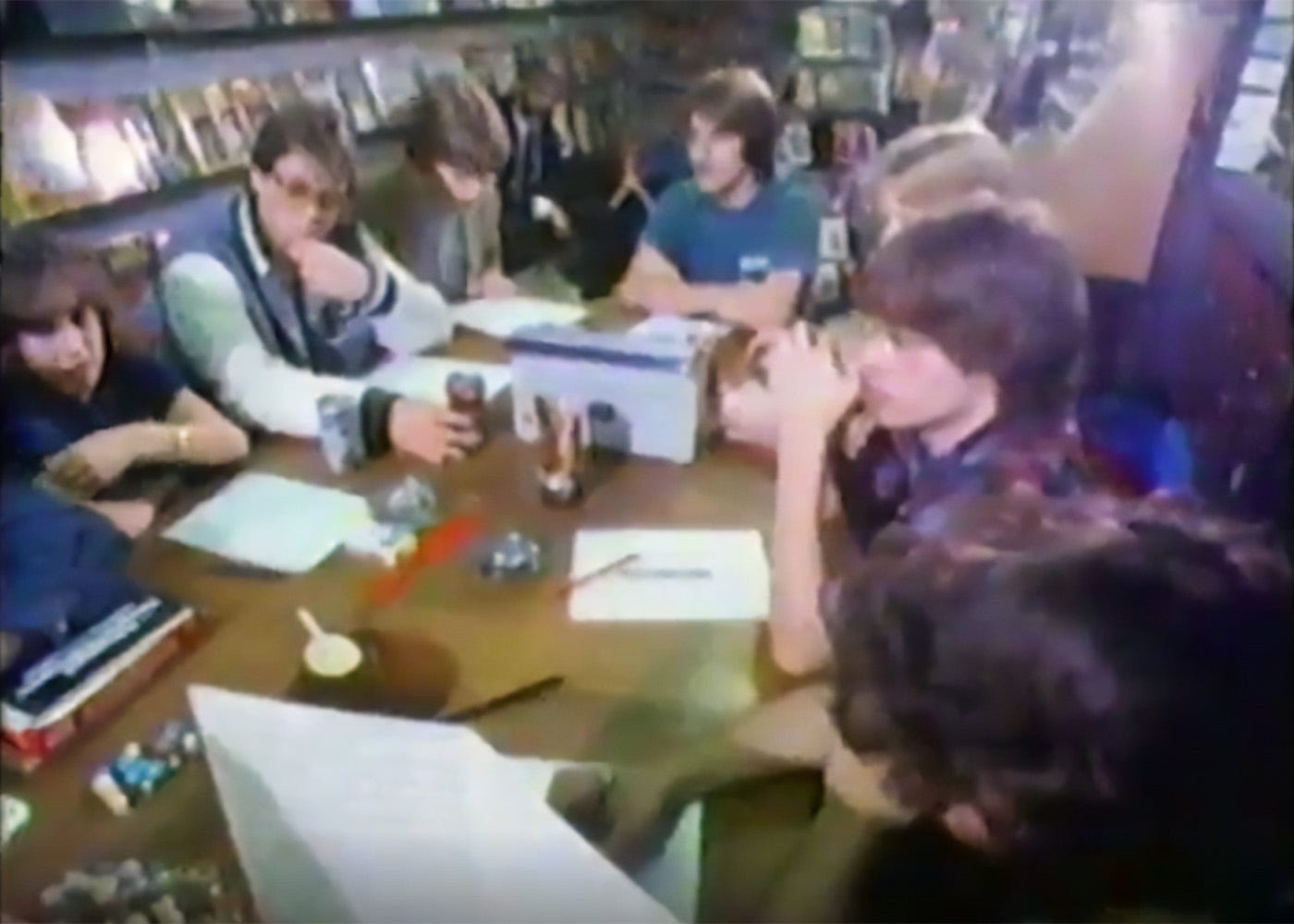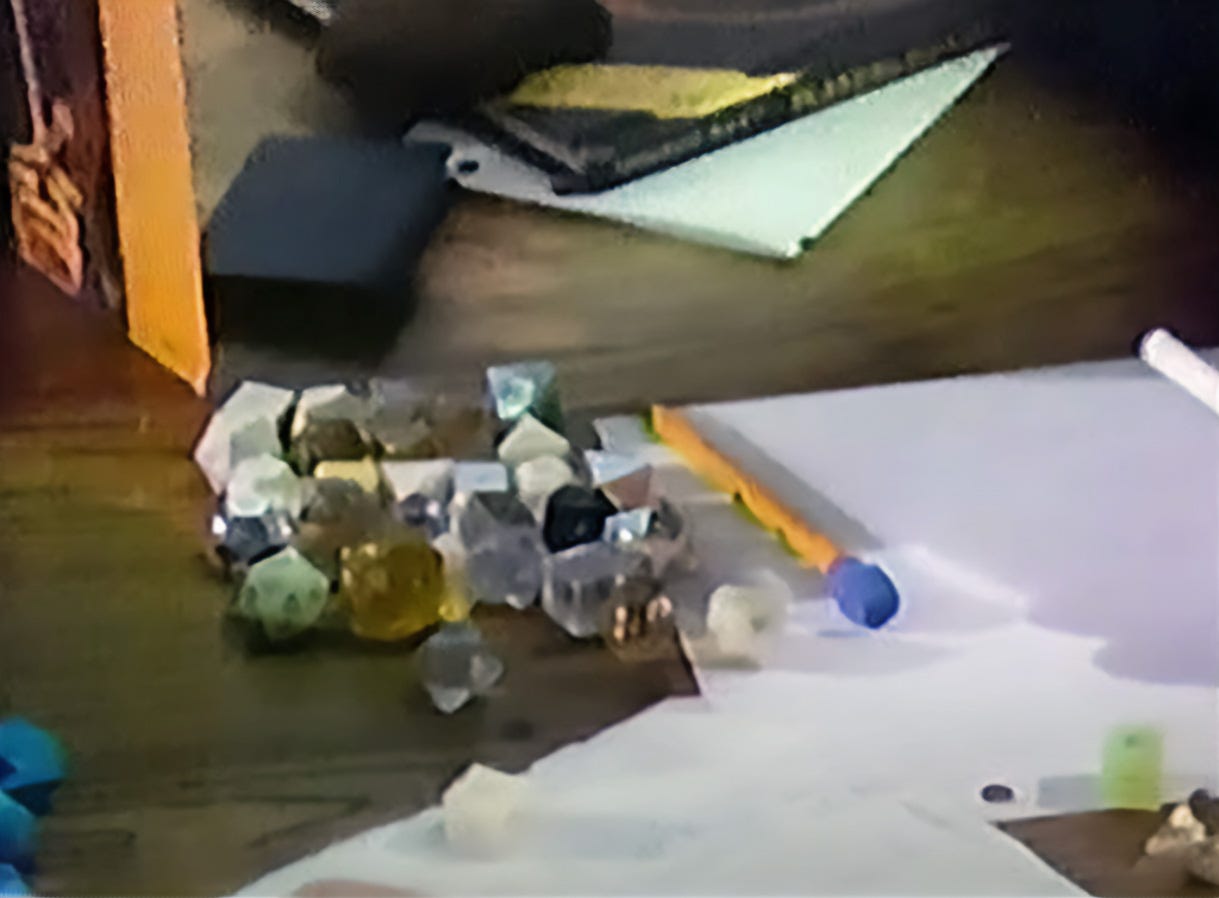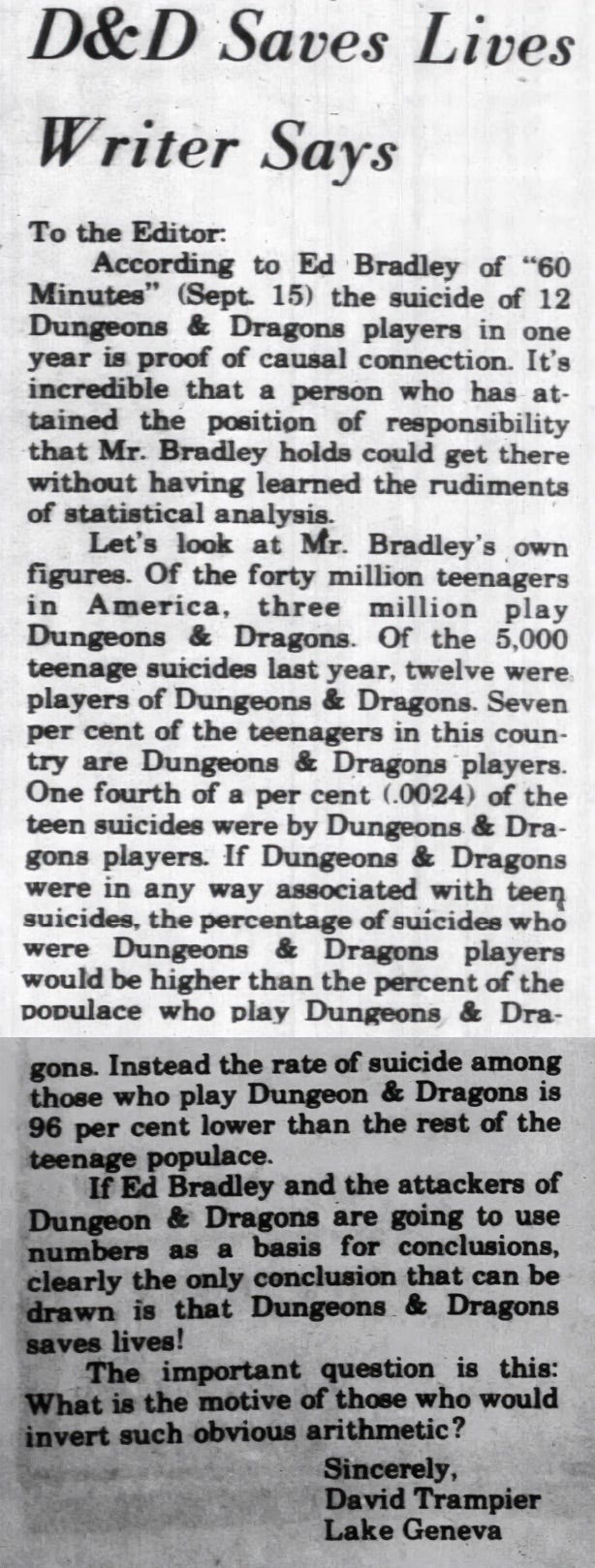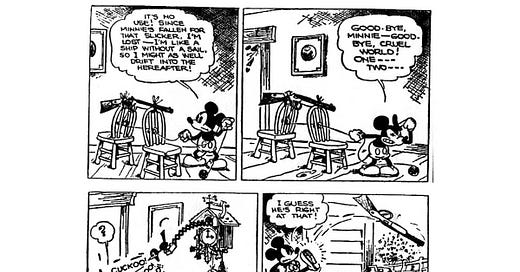
In 1985, I had been comfortably playing Dungeons & Dragons for a few years. My family accepted my fandom and constant playing of the game. All was right with the world. That is when the TV show 60 Minutes, which the adults in my household watched every week, threw my life a curveball. On the September 15th episode of the series that year, Ed Bradley did a story that attempted to connect the hobby to suicides and murders in young people. This unfortunate sensationalist story led to some painful discussions with both my mother and grandmother who bought into the hype.
Unfortunately, I didn’t get to see the story at the time. I wouldn’t see it until a copy of it found its way to the internet, and even though decades had passed since its airing, the segment still made me furious.
There is a lot to be furious about here. Dungeons & Dragons, like many trends and interests, has been correlated with bad things since mainstream media first got wind of it. Pieces like this, and Rona Jaffe’s Mazes & Monsters, just helped to amplify these bad opinions. Before I get to the heart of the problem with this report, and I will be using the words of a D&D legend to refute it, I wanted to talk about why else this is worth watching.
You get footage of Gary Gygax logically defending his creation in an amazing sweater.
You get footage of people actually engaged in playing the game at the time. It looks like 1st Edition AD&D.
The footage and discussion of some beautiful precision dice. Although, they treat the dice like they are way more unusual than they actually are.
I was rewatching this recently and thought it would be interesting to discuss. Often the early unfounded D&D controversy is dominated by the Satanic Panic, and this particular bit of televised history gets overshadowed by it. But if you lived in the suburbs in the mid-80s, there was a good chance that this was the first time your parents bought into the controversy around the game. If it wasn’t the first time, it certainly was a reminder.
I didn’t really know how to defend my hobby against such attacks. If I had seen Gygax speaking, I would have probably reiterated his points. Since I didn’t, I had to fall back on trying to reassure my mom that this wasn’t what the game was about. That it was just a game, a fun escape, no different from the board games that I also loved. Luckily, I had adults who, while careful, also trusted me. A lot of kids lost their ability to play the game after this aired.
After the rewatch, I started to look online for discussions of the segment when I stumbled across this letter that was written by one of my favorite fantasy artists and Dungeons & Dragons legend, David A. Trampier (DAT).
Trampier illustrated a lot of the early game material that helped me fall in love with the game. He also created the comic Wormy and the war game, Titan, before leaving the RPG world completely and seemingly abruptly in the late eighties.
One thing I didn’t know about Trampier is that he liked to write letters to the local newspaper in Lake Geneva, Wisconsin. In a September 1985 issue of The Lake Geneva Regional News, they published this letter from DAT.
What Tramp is saying here is exactly what I would have liked to say to the people that Ed Bradley was pushing sensationalist nonsense. When you look at the numbers presented in the report, they add up to a game that doesn’t take lives, but saves them. I wouldn’t make that bold of a claim, I don’t have the experience or nuanced statistics needed to do so. But as a young player, who played the game through some difficult times, I can testify to its positive impact on my mental health and social skills.
The camaraderie and teamwork required in the game provided a sense of belonging and support that was otherwise lacking in other aspects of my life. The strategic thinking and problem-solving it encouraged helped me develop critical life skills that I use to this day. So, while sensational claims grab headlines, it’s important to consider the beneficial effects that often go unreported.
Images are not a great way of sharing and preserving information. So, I am going to transcribe Trampier’s letter below. Seeing his passion for defending a game that means so much to me, at a time when I was having a hard time figuring out how to do that myself, makes me appreciate his contribution to this game even more.
D&D Saves Lives Writer Says
To the Editor:
According to Ed Bradley of “60 Minutes” (Sept. 15) the suicide of 12 Dungeons & Dragons players in one year is proof of causal connection. It’s incredible that a person who has attained the position of responsibility that Mr. Bradley holds could get there without having learned the rudiments of statistical analysis.
Let’s look at Mr. Bradley’s own figures. Of the forty million teenagers in America, three million play Dungeons & Dragons. Of the 5,000 teenage suicides last year, twelve were players of Dungeons & Dragons. Seven percent of the teenagers in this country are Dungeons & Dragons players. One fourth of a percent (.0024) of the teen suicides were by Dungeons & Dragons players. If Dungeons & Dragons were in any way associated with teen suicides, the percentage of suicides who were Dungeons & Dragons players would be higher than the percent of the populace who play Dungeons & Dragons. Instead, the rate of suicide among those who play Dungeons & Dragons is 96 percent lower than the rest of the teenage populace.
If Ed Bradley and the attackers of Dungeons & Dragons are going to use numbers as a basis for conclusions, clearly the only conclusion that can be drawn is that Dungeons & Dragons saves lives!
The important question is this: What is the motive of those who would invert such obvious arithmetic?
Sincerely,
David Trampier
Lake Geneva




















We had nothing of the sort in NZ. We were totally free to become obsessed with D&D until it melted our brains.
Great post! Loved playing Dungeons & Dragons with my best friends. Played for a few years until I was about 14. My parents never knew about it. When I look back I can understand why parents were concerned to a degree... we did get wrapped up in that imaginary world for sure. Still, it brought out a lot of imagination and we had a blast passing the time with each other as friends. I even had a Dungeon Master's Manual for a few years. I let my friend borrow it and never got it back. That bastard! lol